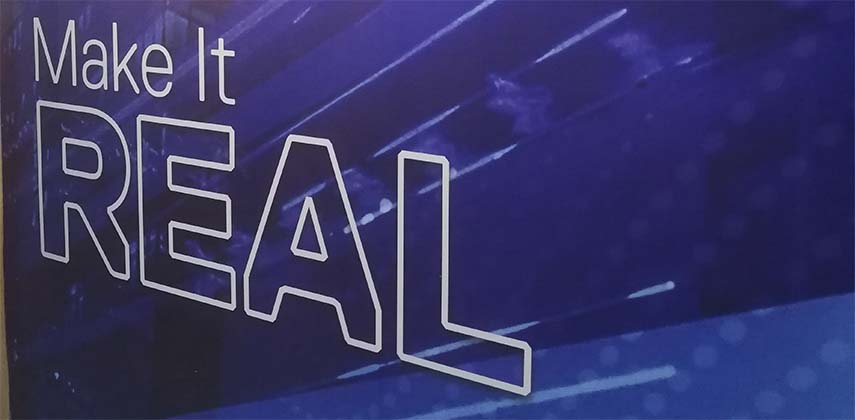Kathy Gibson is at Dell Technologies Forum in Sandton – Technology is changing the world – and organisations need to make the digital transformation journey that embraces IT, workplace, security and application transformation.
This is the word from Patricia Florissi, president: global sales and customer operations at Dell Technologies, who points out that technology has already dramatically changed lives across the globe.
Life expectancy and education levels are better than they have ever been, she says. Global GDP is up, and the global economy has expanded, while poverty levels are down.
In the future, technology will help us to grow more food and improve the global supply chain to ensure that everyone has access to it.
“We can understand precisely how healthy crops are, when is the best time to harvest them and how they can be optimally distributed,” she points out. “We can measure oil reserves via satellite data.
“Artificial intelligence (AI), machine learning and deep learning will transform everything. And data is the source of the energy.”
Importantly, data is inexhaustible, she adds.
AI has been the goal of computing for the last 50 years, Florissi says, although today it is taking off rapidly.
The technology forces that have made the new paradigm feasible today are AI, the Internet of Things, augment and virtual reality (AR/VR), and the edge, powered by 5G.
“This is the continuum: from the edge, to the core, to the cloud,” Florissi says.
“Processing capacity is now everywhere: and the business fabric is going to change. Blockchain is going to change the way we do business. At the same time, quantum computing moves us into a new era.”
An example is the autonomous vehicle that is able to process data that humans would not be able to.
“The point is, regardless if you are a $2-trillion powerhouse, or a small farmhouse, Dell cares about you,” she adds. “We want to be your partner of choice.”
Dell has invested more than $30-billion into innovation over the last three years.
A study three years ago aimed to understand the maturity level of customers.
There are Digital Laggards, Followers, Evaluators, Adopters and Leaders. At that stage, just 5% of companies were Leaders, with digital technologies ingrained in the organisation.
Three years later, the percentages and shape of the curve have remained the same. “The reason is that change is hard,” Florissi says. “And 91% of companies face persistent barriers.”
These are time, skills, funding and risk.
Risk is real because many companies lack an understanding of an overall strategy of digital transformation, and a paucity of best practice.
Every organisation needs to be a digital organisation, powered by data and running in a multi-cloud world, she says.
Getting to this goal requires four transformations: IT, workforce, security and application transformation.
Companies are having to go through one of more of these transformations at the same time.
IT transformation starts with modernising the infrastructure, implementing modern and consistent operation, and modern service delivery.
The modern infrastructure means implementing next generation media, achieving multi-dimensional scale, with software-defined architectures on hybrid and multi-cloud infrastructure with security and data protection, and using AI in operations.
The company recently launched the Dell Technologies Cloud that merges technology from Dell and VMware to create a tightly-integrated VMware stack on Dell EMC. “That becomes your operational hub of choice,” Florissi says.
The Dell Technologies Cloud allows for a consistent operating model across multiple public clouds, private cloud and the edge.
Dell has partnered with major cloud providers including Microsoft Azure, Amazon Web Services and more than 4 200 cloud partners.
Workforce transformation means driving smarter, faster and inspired user experiences. This requires integrated and intelligent modern management with trusted, transparent and innovative security.
Florissi points out that young people make employment decisions based on the technology available from employers. “So you have to bring technology into the organisation,” she says.
Dell delivers the Unified Workspace that helps companies to deploy, secure, manage and support the devices, services and support required for a transformed workplace.
Security transformation helps companies to embrace risk. To do this, they have to simplify security and empower people.
Application transformation gives companies the speed to develop new applications in the shortest time, with the best end user experience. To do this, they need to streamline application operations while minimising application delivery risk.
Importantly, Dell is making the digital transformation journey itself, Florissi says.
The company, through its own experience, has developed the Dell Digital Way, using its own services and products.
“We are creating a set of best practices that we share with customers to help them create world-class experiences to accelerate their business outcomes.”


